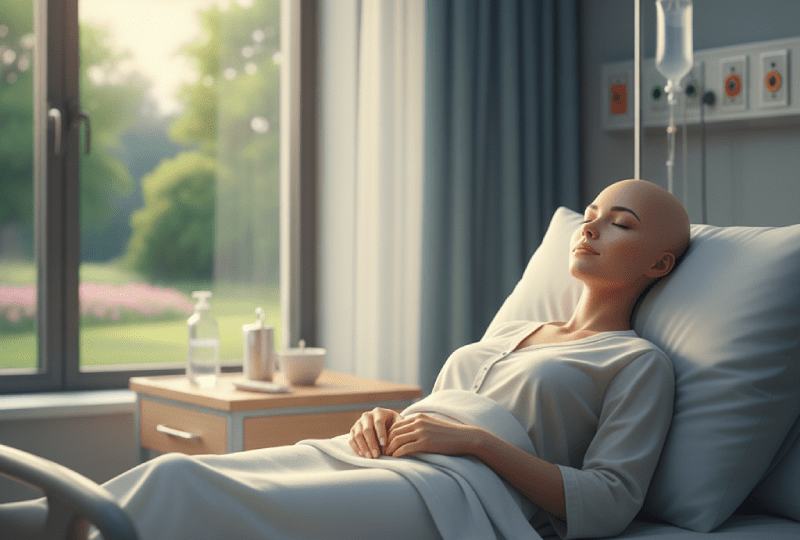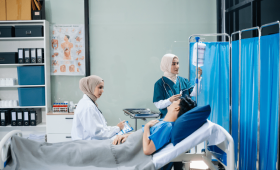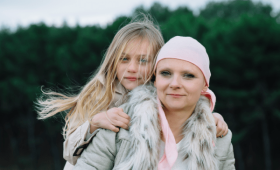Why Has Turkey Become An International Center For Cancer Treatment?
Turkey owes its emergence as an international center for cancer treatment primarily to major investments in high-technology medical devices. Treatment centers are equipped in line with the world’s leading technological standards and offer fast and effective services that reduce patient waiting times. Furthermore, the presence of health professionals who have been trained to Western standards and possess high case experience, coupled with treatment costs being significantly more affordable compared to many European and North American countries, makes Turkey an attractive option. The combination of all these factors ensures that patients receive both high-quality and economical solutions. You can contact Cure Holiday to evaluate your treatment options.
Do Turkish Hospitals Have International Accreditations?
Many large healthcare institutions and cancer treatment centers in Turkey hold international accreditations that certify their quality of service and patient safety. Accreditations granted by independent organizations like JCI (Joint Commission International), in particular, prove that hospitals comply with the highest global standards in infection control, surgical procedures, patient care, and management processes. These accreditations serve as an important indicator of trust for international patients and confirm the quality of the health services received. Cure Holiday will assist you in checking the accreditation status of the centers you are considering for treatment.
What Does The Multidisciplinary Approach Mean In Cancer Treatment?
A multidisciplinary approach in cancer treatment means that the patient’s treatment is jointly planned by a Tumor Board composed of different specialists (medical oncologist, surgical oncologist, radiation oncologist, pathologist, and radiologist). Through this approach, every case is evaluated in light of the knowledge and experience of multiple experts, ensuring that the most suitable treatment strategy is determined. This guarantees not only the application of standard protocols but also the offering of the most current treatment options tailored to the patient’s biological subtype and personal health condition. Cure Holiday will provide you with consultation to find the most appropriate expert team for this meticulous planning process.
How Do Cancer Treatment Costs In Turkey Compare To Global Costs?
Despite using advanced technologies and medications in cancer treatments, Turkey offers globally competitive prices in terms of treatment costs. Especially when compared to the United States and Western European countries, the costs for a treatment of the same quality and scope (surgery, chemotherapy, and radiotherapy) can be 40 to 70 percent lower. This price advantage stems from lower living expenses and labor costs, and it does not imply any compromise on quality. It is advisable to contact Cure Holiday for a transparent cost analysis suitable for your budget and needs.
What Is The Quality Of Translation Services And Communication Support During Treatment?
Cancer centers in Turkey that offer international patient services provide comprehensive interpretation services to completely eliminate communication barriers. These services include providing professional medical interpreters at every stage, from airport pick-up to hospital admission, doctor consultations to medical procedures. This uninterrupted communication support is vital for patients to feel safe and fully understand every detail related to their treatment. You can contact Cure Holiday to get detailed information about your personal patient representative and interpreter who will be assigned throughout your treatment.
What Advanced Technologies Are Used In Radiation Oncology In Turkey?
Cancer treatment centers in Turkey actively use the most current technologies in the field of radiation oncology. These devices include Intensity-Modulated Radiation Therapy (IMRT), which adjusts the radiation dose according to the tumor’s shape to minimize damage to healthy tissue, Stereotactic Body Radiation Therapy (SBRT), which delivers high-dose radiation in a very short time, and Image-Guided Radiation Therapy (IGRT), which tracks tumor movement. These advanced techniques increase treatment precision, raise success rates, and significantly reduce side effects. Cure Holiday will recommend the most accurate center for information on the technology used in your treatment planning.
How Are Chemotherapy And Targeted Therapies Applied In Turkey?
Chemotherapy and targeted (smart drug) therapies are applied in Turkey in full compliance with international guidelines (NCCN, ESMO). Before starting treatment, the tumor’s genetic map (mutation analysis) is created to determine the most appropriate chemotherapy protocol or targeted drug. This personalized treatment approach maximizes the effectiveness of the drugs while minimizing unnecessary side effects. Centers in Turkey have an advantage in providing rapid access to new-generation immunotherapy and smart drugs. You can consult Cure Holiday for advice on your customized treatment plan and drug protocols.
How Should Travel Processes To Turkey For Cancer Treatment Be Planned?
Travel processes to Turkey for cancer treatment must be planned with the patient’s and companion’s comfort in mind. Initially, the patient’s current medical reports and imaging results are evaluated remotely. Subsequently, a travel schedule suitable for the hospital stay and treatment duration is created. All logistical details, such as flight tickets, airport transfers, and arranging accommodation near the hospital, are coordinated meticulously. The patient’s resting period before and after treatment is also included in this planning. You should contact the expert team at Cure Holiday for a smooth and stress-free treatment travel plan.
What Advantages Does Robotic Surgery Provide In Cancer Operations?
Robotic surgery offers many advantages over standard laparoscopic surgery in cancer operations, especially for prostate, gynecological, colorectal, and lung cancers. The robotic system provides the surgeon with magnified three-dimensional vision and the ability to move with a precision unattainable by the human hand. This allows the surgery to be performed through smaller incisions, which means less blood loss, less pain, a shorter hospital stay, and faster recovery for patients. Cure Holiday can guide you on robotic surgery options and your suitability.
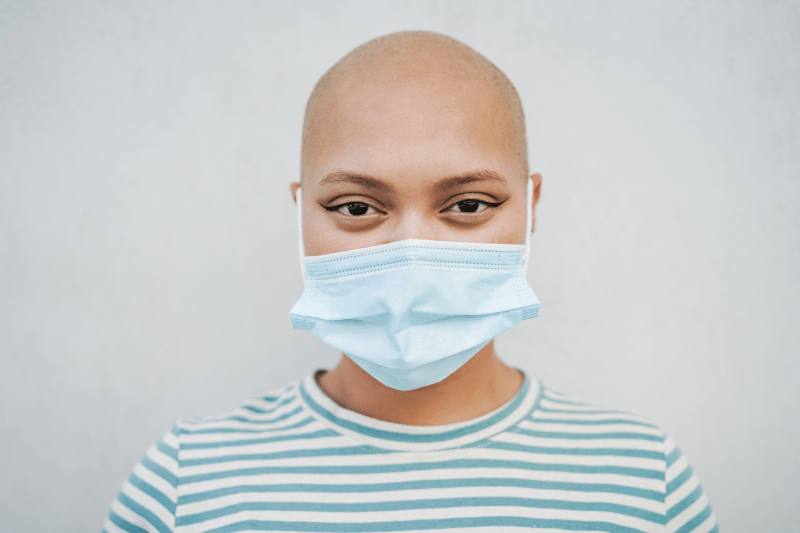
What Do Patients’ Pre-Treatment Preparation Processes Cover?
Pre-treatment preparation processes aim to ensure the patient starts surgical or systemic treatment in the best possible physical and psychological condition. This process includes comprehensive blood tests, detailed cardiological evaluations, dental checks, and necessary imaging tests (PET/CT, MRI). Lifestyle changes such as quitting smoking and alcohol are encouraged, and consultation with a dietitian is sought for nutritional support. This detailed pre-preparation reduces anesthesia risk and increases the success of the treatment. You can receive support from Cure Holiday for the complete planning of your pre-treatment preparations.
How Can Immunotherapy Be Accessed In Turkey For Cancer Treatment?
Immunotherapy is widely applied in major cancer centers in Turkey, within internationally approved and current protocols. The patient’s suitability for immunotherapy is determined by performing special biomarker tests like PD-L1 on the tumor tissue. Turkey provides rapid access to new-generation immunotherapy agents, allowing patients to start treatment without delay. Treatment plans where immunotherapy is combined with chemotherapy or used alone are created specifically for the patient. You can consult Cure Holiday for information about your suitability for immunotherapy and the latest developments in this field.
What Are The Hospital Accommodation Conditions And Room Comfort Like?
Cancer treatment centers in Turkey offer high-standard accommodation conditions that prioritize the comfort and privacy of international patients. Patients are generally accommodated in single rooms with private bathrooms, modern design, and television and internet access, where their companions can also stay comfortably. The rooms are meticulously managed in terms of hygiene and patient safety, aiming to provide a peaceful environment that supports the patient’s recovery process. You can consult Cure Holiday to get detailed information about your hospital accommodation and companion conditions.
What Is The Importance Of Getting A Second Opinion For Cancer Patients?
Getting a second opinion in complex and life-threatening diseases like cancer is crucial for the patient and their family to gain more knowledge about treatment options and participate confidently in the decision-making process. A second opinion helps confirm the diagnosis, verify the staging, and check whether the proposed treatment plan (surgery, radiotherapy, or drug protocol) is consistent with current international guidelines. This process can be critical, especially in rare or aggressive cancer types. Cure Holiday will assist you in getting a second opinion from a reliable and experienced specialist.
How Are Potential Side Effects Managed During The Treatment Process?
The management of side effects (chemotherapy, radiotherapy, immunotherapy) that may occur during the treatment process is extremely important for preserving the patient’s quality of life and ensuring the continuity of the treatment. Centers in Turkey implement advanced supportive treatment protocols for side effect management. Special medications and supportive care services are provided for side effects like nausea, vomiting, pain, and fatigue. Additionally, nutritionists and psychologists are involved in this process to support the patient’s general condition. You can contact Cure Holiday for your comfortable and effective side effect management plan.
What Surgical Techniques Are Applied In Breast Cancer Treatment?
The surgical techniques applied in breast cancer treatment vary according to the stage and biological subtype of the disease. Breast-Conserving Surgery (Lumpectomy), Mastectomy (removal of the entire breast), and Sentinel Lymph Node Biopsy (to evaluate lymph nodes in the armpit) are standardly applied in centers in Turkey. The modern approach aims to optimize aesthetic results with oncoplastic techniques. Patients requiring mastectomy are offered options for simultaneous or delayed Breast Reconstruction. You can request consultation from Cure Holiday for detailed information about your surgical options.
How Is Suitability For Surgery Determined In Lung Cancer?
Suitability for surgery in lung cancer is determined by the tumor’s stage (usually early-stage NSCLC), size, the patient’s general health status, and respiratory functions. Detailed Pulmonary Function Tests (PFT) and cardiological evaluations are performed before the operation. The goal is to ensure that the patient’s remaining lung capacity will be sufficient after the tumor is removed. Surgical teams in Turkey generally perform operations using minimally invasive methods such as VATS (Video-Assisted Thoracoscopic Surgery). Please contact Cure Holiday for your surgical suitability to be evaluated by a multidisciplinary board.
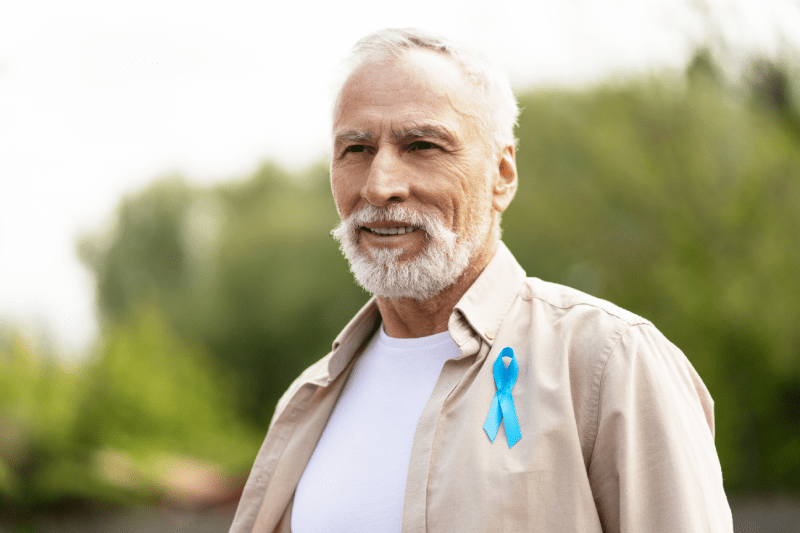
What Are The Opportunities In Turkey For The Treatment Of Childhood Cancers?
Major oncology centers in Turkey offer high-standard services in the treatment of childhood cancers (leukemia, lymphoma, brain tumors). Teams specialized in pediatric oncology apply treatment protocols (chemotherapy, radiotherapy, stem cell transplantation) suitable for the special needs of children. Stem Cell Transplantation centers, in particular, are equipped with international accreditations. The psychosocial support needs of pediatric patients are also met through special playrooms and expert staff. You can search for the most suitable pediatric oncology centers for your child’s treatment with Cure Holiday.
What Are The Long-Term Follow-Up And Monitoring Protocols After Cancer Treatment?
Long-term follow-up after cancer treatment is vitally important for detecting the risk of recurrence at an early stage and managing the long-term side effects of the treatment. Follow-up protocols are determined according to the cancer type and stage but generally include regular physical examinations, blood tests, and imaging tests such as PET/CT or MRI, performed more frequently during the first 2-3 years. Centers in Turkey offer international patients the possibility of continuing these follow-ups with remote consultations and organized local tests. Cure Holiday will support you in not neglecting your long-term follow-up plan.
Are Psychological And Social Support Services Offered For Patients?
The cancer diagnosis and treatment process is a major psychological and emotional burden on patients and their families. Therefore, modern cancer centers in Turkey offer psychological and social support services together, with a holistic approach to treatment. Individual or group therapies through Onco-psychologists help manage anxiety, depression, and treatment adaptation issues. Additionally, social workers provide guidance to the patient and companion on support, accommodation, and travel-related matters. You can request support from Cure Holiday for the psychosocial aspect of your treatment process.
What Are The Most Commonly Applied Cancer Screening Programs In Turkish Hospitals?
International standard screening programs are widely offered in healthcare centers in Turkey to ensure the early detection of cancer. These include Mammography (breast cancer) and Smear Test (cervical cancer) for women, Fecal Occult Blood Test and Colonoscopy (colorectal cancer) for the general population, and Low-Dose CT (lung cancer) screenings for high-risk smokers. Since early detection significantly increases treatment success, you can apply to Cure Holiday to find out if you are in the risk group and to plan your screening schedule.
What Is The Purpose Of Neoadjuvant Therapy Before Surgical Treatment?
Neoadjuvant therapy (generally chemotherapy, hormone therapy, or targeted therapy) applied before surgical treatment aims to shrink the tumor size and facilitate its complete surgical removal. Especially in cases of large tumors or spread to lymph nodes, it can make the surgery less extensive (for example, allowing breast-conserving surgery instead of mastectomy). It also offers the opportunity to observe the tumor’s sensitivity to the applied treatment, enabling a more effective guidance for the treatment plan after surgery (adjuvant). You can get information about your neoadjuvant treatment protocols from Cure Holiday.
How Is PET/CT (Positron Emission Tomography/Computed Tomography) Used In Cancer Diagnosis?
PET/CT is an advanced imaging method that combines nuclear medicine and radiology, playing a critical role in cancer diagnosis and staging. Low-dose radioactive sugar (FDG) injected into the body is taken up in high amounts by cancer cells, allowing the cancerous tissue to be detected wherever it is in the body. PET/CT is used in the initial diagnosis of cancer, determining its spread (metastasis), evaluating the response to treatment, and monitoring recurrence. This technology is available in many centers in Turkey. Cure Holiday will support you with PET/CT appointment scheduling and the evaluation of results.
What Are The Most Important Factors Patients Should Consider When Choosing A Treatment Center?
The most important factors patients should consider when choosing a treatment center are the hospital’s international accreditations and certifications, the presence of a multidisciplinary team with high case experience specific to your cancer type, the up-to-dateness of the technology used (such as robotic surgery, IMRT/SBRT), and the quality of international patient services. Additionally, transparent pricing policy and long-term follow-up support are also important. You must consider these criteria to avoid compromising your treatment quality. Contact Cure Holiday for detailed information about reliable centers.
Are Holistic And Complementary Medicine Approaches Applied In Cancer Treatment?
Some cancer treatment centers in Turkey may also offer complementary medicine approaches to reduce the side effects of conventional oncological treatments (chemotherapy, radiotherapy), improve the patient’s general condition, and enhance the quality of life. These approaches may include methods such as Acupuncture (for pain and nausea), Phytotherapy (Herbal Treatment), and Ozone Therapy. However, these methods are always supplementary to the main treatment and never replace it. You can get information about safe and scientifically grounded complementary treatment options from Cure Holiday.
How Are Patients’ Legal Rights And Safety Protected During The Treatment Process?
Turkey has legal regulations that protect the legal rights and safety of international patients. Patients have the right to be informed in detail about all risks, benefits, and alternatives of the treatment through the informed consent form before the treatment process. All medical records are kept in accordance with the principle of confidentiality. In case of any problem during treatment, fast resolution mechanisms are available through international patient units and relevant legal authorities. Cure Holiday will guide you to ensure your treatment process proceeds in accordance with legal and ethical standards.
How Can Hair Loss After Chemotherapy Be Managed?
Hair loss after chemotherapy is an emotionally challenging side effect for many patients. This condition generally results from chemotherapy drugs targeting rapidly dividing cells. In some cancer centers in Turkey, Scalp Cooling systems worn on the head during chemotherapy to cool the scalp are used to reduce hair loss. This method can significantly alleviate hair loss by reducing the amount of medication reaching the hair follicles. You can consult Cure Holiday about hair loss management and the suitability of the scalp cooling system.
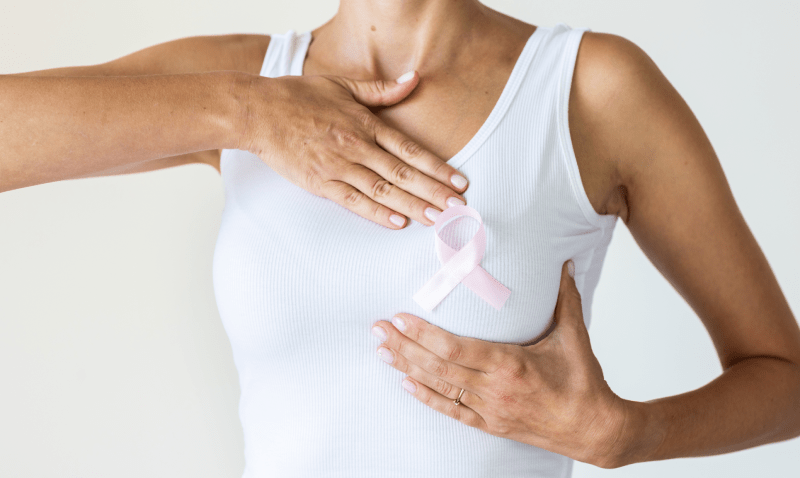
What Are The Rehabilitation And Physiotherapy Opportunities For Patients After Treatment?
Cancer treatment, especially after surgery or radiation therapy, can lead to problems such as restricted movement, muscle weakness, and lymphedema in patients. Comprehensive treatment centers in Turkey offer special Oncological Rehabilitation and Physiotherapy programs to help patients regain their physical functions. These programs include personalized exercises and specific techniques such as lymphedema therapy. Physiotherapy accelerates the recovery process and helps the patient return to daily life stronger. It is recommended to consult Cure Holiday for information about rehabilitation programs.
Is Genetic Counseling Provided For High-Risk Patients?
Genetic Counseling services are offered in cancer centers in Turkey for high-risk patients, especially those with a family history of multiple cancers or those diagnosed with cancer at a young age. This service includes risk assessment for hereditary mutations such as BRCA1, BRCA2, and interpretation of genetic test results. Based on the results, risk-reducing strategies such as preventive surgery or regular intensive follow-up are determined. Genetic counseling is important for managing the future risks of both the patient and family members. You can reach Cure Holiday experts for support in this matter.
What Are The Most Current Technological Imaging Methods Used In Cancer Treatment?
The most current technological imaging methods used in cancer treatment are increasing the accuracy of diagnosis, the precision of staging, and the effectiveness of treatment monitoring. These include PET/CT, which shows the metabolic activity of the tumor, 3 Tesla MRI, which has high soft tissue resolution, and Multislice CT (Multislice CT), which provides detailed anatomical information, especially before surgery. These advanced imaging techniques are widely used in Turkish hospitals. You can get information from Cure Holiday about which imaging method is suitable for you.
What Is The Importance Of Individualized (Personalized) Cancer Treatment?
Individualized cancer treatment means creating a treatment plan based on the unique genetic and molecular characteristics of each patient’s tumor. This approach determines which drugs (targeted or immunotherapy) will be most effective by mapping the tumor’s biological profile (mutations, gene expressions). This avoids unnecessary and ineffective treatments, increases the chance of success, and minimizes side effects. Centers in Turkey have advanced molecular testing infrastructure to provide this personalized treatment. You can consult Cure Holiday experts for your personalized treatment planning.
How Are Visa Procedures Facilitated For Patients Coming To Turkey For Treatment?
Turkey has made various arrangements to facilitate visa procedures for international patients coming for treatment under health tourism scope. While e-visa application is available for patients from some countries, in cases requiring a visa, official acceptance letters prepared by treatment centers or intermediary institutions support the visa application. These letters prove that the patient is traveling for treatment purposes and that the hospital stay duration is fixed. Cure Holiday provides all the logistical support required for travel documents and the visa process.
How Is The Risk Of Lymphedema Managed And Prevented In Breast Cancer?
Lymphedema (swelling in the arm or hand) in breast cancer treatment is a potential risk that can occur, especially after surgical procedures involving the removal of armpit lymph nodes. In centers in Turkey, this risk is minimized by reducing unnecessary lymph node removal with Sentinel Lymph Node Biopsy. Patients at risk are provided with education on preventive lymphedema physiotherapy (manual drainage, bandaging, specific exercises). Regular follow-up and special rehabilitation programs are offered for early detection and management. You can contact Cure Holiday for support in the prevention and treatment of lymphedema.
What Are The Modern Radiotherapy Techniques Used In Prostate Cancer?
In prostate cancer treatment in Turkey, modern radiotherapy techniques that offer high success rates and reduce surrounding tissue damage are used. Foremost among these is Stereotactic Body Radiation Therapy (SBRT), which shortens the treatment period and delivers a high dose in each session. Additionally, Intensity-Modulated Radiation Therapy (IMRT), which adjusts the radiation according to the tumor’s shape, and Image-Guided Radiation Therapy (IGRT), which monitors tumor movement during radiation, are also standardly applied. These techniques enable precise treatment even in mobile organs like the prostate. You can get information about your treatment options from Cure Holiday.
Is There An Opportunity To Participate In Clinical Trials At Cancer Centers In Turkey?
Academic oncology centers and large private hospitals in Turkey actively participate in many clinical trials conducted according to international standards. Clinical trials offer patients access to new, promising drugs (new immunotherapy agents, new smart drugs) or treatment combinations beyond standard treatment options. These studies can be an important chance, especially for patients who do not respond to standard treatments. You can get detailed consultation from Cure Holiday experts to learn about your eligibility and participation conditions for clinical trials.
How Is Flight Safety Ensured When Traveling For Treatment Purposes?
Flight safety for patients traveling for cancer treatment is of great importance, especially after surgery or chemotherapy. Whether the patient is fit to fly must be approved by an oncologist or surgeon, considering their blood values and general health status. To reduce the risk of blood clots (deep vein thrombosis) during long flights, it is recommended to move frequently, stay hydrated, and use special stockings if necessary. Cure Holiday will provide you with special guidance on medical approval before travel and precautions to take during the flight.
What Are The Approaches In Turkey For Advanced Stage (Metastatic) Cancer Treatment?
The approaches in Turkey for advanced stage (metastatic) cancer treatment aim to manage the disease as a chronic condition, prolong the patient’s lifespan, and enhance the quality of life. Treatment at this stage focuses particularly on personalized Immunotherapy, new-generation targeted drugs, and optimized chemotherapy combinations. Additionally, Palliative Care services are integrated into the treatment process for pain and symptom management. You can consult Cure Holiday experts for the most current and personalized protocols in advanced-stage cancer treatment.
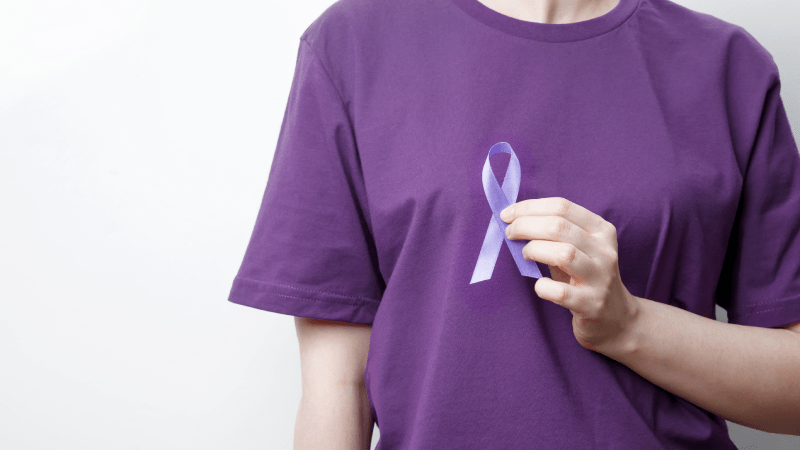
How Is The Recovery Process Managed After Early Discharge From Hospitals?
The recovery process after early discharge from the hospital is generally managed with rest at home, meticulous adherence to nutritional rules, and light physical activities. Patients can usually return to their daily routines within a few weeks after laparoscopic surgery. Detailed education is provided to the patient and companion regarding possible complications during the recovery process, and a 24/7 communication line is provided. The process is monitored remotely through regular telephone or video conference check-ups. Cure Holiday will offer support to ensure your recovery process proceeds in the most comfortable manner.
With What Opportunities Is Breast Reconstruction Offered After Oncological Surgery?
Breast Reconstruction after oncological surgery is an important step that supports the patient’s body integrity and psychosocial health, and it is offered with extensive opportunities in centers in Turkey. Reconstruction can be performed using Implants (silicone or saline prostheses) or the patient’s own tissue (Flap Methods – for example, abdominal tissue). These procedures can be performed simultaneously with the mastectomy (immediate) or later (delayed). You can consult expert aesthetic surgeons through Cure Holiday for the most suitable and aesthetically satisfying reconstruction option for you.
How Are Patient Rights And Ethical Rules Complied With During The Treatment Process?
All healthcare institutions in Turkey are obliged to comply with patient rights and ethical rules to the maximum extent. This includes the patient’s right to actively participate in decisions about their treatment, the right to privacy, the protection of confidentiality, and the right not to be discriminated against. All treatment protocols are conducted in accordance with standards approved by international ethical boards. Patient rights units are available for the patient to apply to in case of any suspected violation of rights. Cure Holiday will provide you with support and guidance to ensure your treatment proceeds within ethical and legal frameworks.
What Are The Important Logistics Details In Travel Planning For Cancer Treatment?
In travel planning for cancer treatment, the patient’s medical condition is the most important logistic detail. The ease of transportation between the flight ticket, airport transfers (especially providing a wheelchair or special vehicle for patients with mobility limitations), the hospital, and accommodation is critically important. Furthermore, the duration of accommodation must be correctly determined according to the length of the treatment, and the comfort of the companion must be ensured. Cure Holiday provides professional services for organizing all these details faultlessly and according to the patient’s needs, from a single source.
How Should Nutrition And Lifestyle Be After Cancer Treatment?
Nutrition and lifestyle after cancer treatment are important for reducing the risk of recurrence and improving overall health. An anti-inflammatory, high-fiber, and balanced diet (plenty of vegetables, fruits, whole grains) is recommended, while avoiding processed foods and excessive red meat consumption. Regular and light exercise (walking) should be maintained, and a healthy body weight should be preserved. Smoking and alcohol must be strictly avoided. You can receive support from Cure Holiday dietitians for long-term healthy lifestyle adaptation and nutrition guidance after treatment.
Are There Transplantation Applications In Turkish Hospitals?
Yes, Turkey has internationally recognized centers for Stem Cell Transplantation (Bone Marrow Transplantation) applications, which play a vital role in cancer treatment. Especially in the treatment of leukemia, lymphoma, and some solid tumors after high-dose chemotherapy, autologous (patient’s own) and allogeneic (from a donor) stem cell transplants are performed successfully. These centers have high sterilization standards and experienced hematology/oncology teams. You can contact Cure Holiday to get information about the transplantation process and the search for a suitable donor.
How Is The Emergency And Complication Management Of Hospitals?
Cancer treatment centers in Turkey are ready 24 hours a day for rare but serious complications that may arise during bariatric surgery and oncological procedures. Hospitals are equipped with modern medical devices in Intensive Care Units (ICUs) and have experienced emergency medical teams. All procedures for fast and effective intervention in case of a possible complication are determined according to international protocols. This situation provides a critical assurance for your treatment safety. Cure Holiday will provide you with information about the emergency management protocols of the treatment centers.
Is Financial Counseling Provided To The Patient And Family During Cancer Treatment?
Financial counseling services are offered to help patients manage the financial burden they may face during the cancer treatment process. These services include a transparent breakdown of treatment packages, additional costs not covered by insurance, and payment plan options. Patients are provided with clear, upfront information about costs so they can focus on the treatment. Cure Holiday offers special consulting services on financial planning and transparency.
How Are The Necessary Medical Records And Reports Prepared For Treatment?
The necessary medical records and reports for treatment must include the patient’s current diagnosis, staging, previous treatments, and current health status. Before arriving at the center in Turkey, English translations of all reports (pathology, radiology, genetic tests) are requested to be prepared and sent in digital format. These records form the basis for the Tumor Board’s initial evaluation. Cure Holiday will provide you with guidance and translation support in the process of preparing your medical records completely and accurately.

At Which Stage Of Cancer Treatment Do Palliative Care Services Begin?
Palliative care services are a supportive approach that should be applied throughout the entire process, not just for the advanced stages of cancer treatment, but starting from the moment of diagnosis. Its purpose is to improve the patient’s quality of life by managing physical symptoms such as pain, shortness of breath, fatigue, and nausea, as well as psychological distress. Early palliative care strengthens the patient’s compliance with treatment and supports their general health. These services are provided by multidisciplinary teams in centers in Turkey. You can get support from Cure Holiday for comprehensive palliative care services.
What Approaches Are Used In Hormone Receptor Positive Cancer Treatment?
The main approach in Hormone Receptor Positive (HR+) cancer treatment is Hormone Therapy (e.g., Tamoxifen or Aromatase Inhibitors), which aims to prevent hormones from feeding the cancer cells. These drugs are usually used for many years after surgery and radiotherapy. In advanced stages, hormone therapy is combined with new-generation targeted drugs such as CDK4/6 inhibitors that stop the cell cycle, significantly increasing success rates. You can consult Cure Holiday experts for detailed information about these personalized protocols.
What Alternatives Are Evaluated In Case Of Treatment Failure?
In case of cancer treatment failure (recurrence or progression), the treatment strategy is immediately changed, and new alternatives are offered to the patient. These alternatives include a new Targeted Drug aimed at the tumor’s new biological characteristics, a different Chemotherapy regimen, Immunotherapy, or Clinical Trials if the patient is eligible. Instead of despairing in case of failure, it is important to evaluate these alternatives quickly. Cure Holiday will provide you with the most accurate and up-to-date information on current treatment alternatives.
How Does Diagnosis And Treatment Proceed In Advanced Stage Lung Cancer In Turkey?
The diagnosis process in advanced stage lung cancer in Turkey focuses on mapping the tumor’s biological profile. Genetic tests (EGFR, ALK, ROS1, etc.) and PD-L1 analysis are mandatory. Treatment is personalized according to these molecular results; Immunotherapy or Targeted Therapies are primarily initiated for suitable patients. Chemotherapy may be combined with these treatments. The goal is to prolong life while preserving the quality of life. You must contact Cure Holiday for rapid planning of diagnosis and treatment.
Are Non-Surgical Cancer Treatment Options Available At Treatment Centers?
Advanced cancer centers in Turkey successfully apply non-surgical cancer treatment options. These options include high-precision radiotherapy techniques such as Stereotactic Body Radiation Therapy (SBRT) and Stereotactic Radiosurgery (SRS) (especially for small metastases in the brain and lung). Additionally, interventional radiology methods such as Radiofrequency Ablation (RFA), which destroys the tumor by heating it, and Chemoembolization, applied via the vascular route, are also available. Cure Holiday will provide information about these options for patients who are not suitable for surgery or are looking for minimally invasive solutions.
What Is The Role Of A Nutrition Specialist During Cancer Treatment?
The role of a nutrition specialist during cancer treatment is vital for reducing treatment side effects, strengthening the patient’s immune system, and preventing treatment-related weight loss or malnutrition. The nutrition specialist creates a personalized, high-calorie, and high-protein diet plan based on the patient’s appetite status, experienced side effects (nausea, difficulty swallowing), and cancer type. Proper nutrition helps the patient respond better to treatment. You can book an appointment with Cure Holiday for nutritional counseling support.
How Are Chronic Pains Caused By Treatment Controlled?
Chronic pains caused by cancer treatment are usually controlled with a multidisciplinary approach by Palliative Care and Pain Treatment units in centers in Turkey. Pain management is supported not only by medication but also by interventional methods (nerve blocks), radiotherapy, and physiotherapy. The patient’s pain intensity is regularly evaluated, and dosages are adjusted to keep the pain to a minimum. Cure Holiday will assist you in getting expert support for the management of chronic pains that diminish your quality of life.
What Vaccines Are Recommended Before Coming To Turkey For Treatment?
Some vaccines may be recommended to protect the patient’s immune system before starting cancer treatment (especially chemotherapy or immunotherapy), but this decision must be made by the oncologist. Since the immune system is weakened during chemotherapy, vaccinations against influenza (flu) and pneumonia (pneumococcus) are generally advised. Live vaccines are usually not recommended during treatment. You should consult your physician about safe vaccination protocols before and during treatment and get up-to-date medical advice from Cure Holiday.
What Is The Hospitals’ Approach To Medical Waste Management And Environmental Safety?
Accredited hospitals in Turkey strictly adhere to international environmental and safety standards regarding the management of chemotherapy drugs and other medical waste. Hazardous waste is collected, segregated, and disposed of through special procedures without harming the environment. This process is vitally important for protecting the health of both patients and healthcare workers, as well as the environment. Hospitals use specially trained personnel and licensed waste collection systems to fulfill their legal obligations in this regard. Cure Holiday can provide you with information about the centers’ environmental safety approaches.
How Are Insurance And Payment Plans Evaluated For Cancer Patients?
The evaluation of insurance and payment plans for cancer patients is an important part of international patient services. Centers in Turkey can work with most international insurance companies and offer a service to check whether treatment costs are covered by insurance. For costs not covered, transparent pricing and flexible payment plans are created. Financial planning and transparency are ensured so that patients can focus on the treatment. You should get support from Cure Holiday‘s financial advisors to clarify the adequacy of your insurance coverage and cost details before starting treatment.
Can Alternative Medicine Methods Be Used During Treatment?
Patients must consult the oncology team regarding the use of alternative medicine methods during cancer treatment. Physicians in Turkey strictly do not recommend methods without scientific evidence and those that pose a risk of interacting with the main treatment. However, complementary methods that support the treatment and help alleviate symptoms (such as nutritional supplements, some herbal extracts) can be used under the supervision and knowledge of the physician. It should be remembered that no alternative method can replace scientific oncological treatment. Cure Holiday will guide you on safe approaches.
What Cancer Types Are Most Frequently Treated In Turkish Hospitals?
Although major oncology centers in Turkey are specialized in the treatment of all cancer types, the most frequently treated types in international patient traffic include breast cancer, lung cancer, digestive system cancers (colorectal, stomach), gynecological cancers, and prostate cancer. In these cancer types, the most current treatment protocols in surgical oncology, radiation oncology, and medical oncology are applied with high success rates. You can contact Cure Holiday to find the most experienced center specific to your cancer type.
